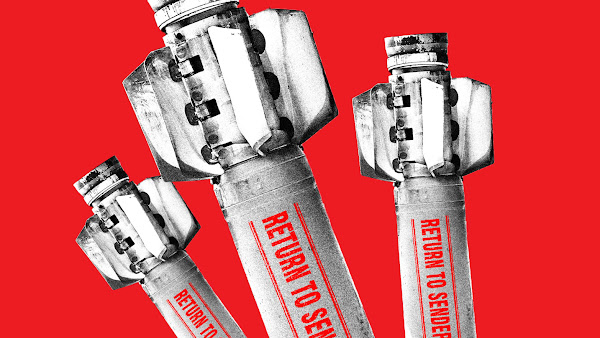At some point, basic questions have to be asked about what costs—in money that could be spent on domestic social programs, in human life on both sides of the war, in dangerously escalating superpower tensions, and now in weakening the global consensus against the use of cluster munitions—we’re willing to pay for the sake of making whatever final settlement sets the exact border between Russia and Ukraine in the Donbas slightly more favorable to the Ukrainian side.
Why is continuing this particular counteroffensive worth tearing apart the bodies of Ukrainian civilians with cluster munitions, not just in 2023, but for years or even decades after the fighting is over? Why not publicly invite Zelensky and Putin to Camp David for peace talks instead? Or why not endorse China’s ceasefire plan from several months ago?
We’re often told that “the Ukrainians” are the ones fighting and dying and that their judgment must be deferred to in all cases. Who are we to question “the Ukrainians” as they fight for their country?
But to talk this way is to treat a nation of 44 million people as a hive mind. The truth is that most ordinary people in any country have little say over foreign policy. Most civilians are just trying to live their lives. And they’re the ones whose children are going to be blown up by these munitions.
Ben Burgis
The fierce debate around the US decision to send cluster bombs to Ukraine for its counteroffensive bears many of the hallmarks of past talking points about this war, from thinly veiled hypocrisies to avoiding hard questions about a possible end state by hiding behind the facile justification that it’s Ukraine’s decision to make. The quoted article is a good summary of many of the contradictions:

- while neither Ukraine nor the US or Russia have signed the Convention on Cluster Munitions, some argue that they’re inherently indiscriminate and thus automatically in violation of the Additional Protocol to the Geneva Conventions (to which both Ukraine and Russia are parties).
- regardless of international treaties, a US law is prohibiting the transfer of cluster munitions with bomblet failure rates higher than 1% – president Biden simply waived this law. The decision is being challenged in the US congress on the basis of human rights – it’s pretty hypocritical of the US to go around preaching human rights to others while abusing those same rights when necessity strikes.
- speaking of hypocrisy (or self-righteousness, if you prefer), Russia’s use of cluster bombs on the battlefield has been previously criticized by the US as a war crime. Is it that different when they’re in the hands of Ukrainians, and used to recover occupied territory? After all, the outcome for the civilians affected is the same…
- the next argument on the ‘pro’ list is that the failure rates of the munitions are sufficiently small that they pose little danger to civilians – a statement rapidly contradicted by articles and experience of previous conflagrations.
- but the Ukrainians promised to not use the rounds in civilian populated urban environments! Trouble is, a large portion of Ukraine’ population is living in rural areas – are they expendable to achieve victory, or less worthy of protection? Their use could also spread unexploded ordnance over arable land which would take years to clear, rendering the land useless to its intended purpose and robbing the country of a valuable source of income. Indiscriminately shelling Russian-controlled areas also exposes Ukraine to accusations of targeting its own Russian population, a popular talking point of Russian propaganda.
Time to defend the rules-based order with a weapon that most of the world has banned.
— Daniel DePetris (@DanDePetris) July 7, 2023
This list of predicaments leading up to the decision both masks and underlines the core issue, a growing disquiet about the progress of the Ukrainian counteroffensive and insufficient supply of munitions to break through Russian trenches. And this in turn reveals the lack of strategy behind the US support: the ammunitions deficit was a known problem since the early stages of the war last year, yet the US administration failed to account for it, or alternatively to encourage a cease fire or peace talks that could have avoided this particular conundrum, or to devise any roadmap for a potential end game. Instead we are facing escalation and a prolonged conflict that will continue to destroy Ukrainian infrastructure and erode its manpower.
The same arguments for supplying otherwise prohibited weapons could be made in favor of chemical agents or even nuclear devices. Oh, the Ukrainian army needs those urgently to break through and liberate their lands from those filthy Russians! They can’t possibly succeed without them! At some point the US will have to draw the line with a hard No; let’s hope it will be before the situation spirals out of control…
Post a Comment